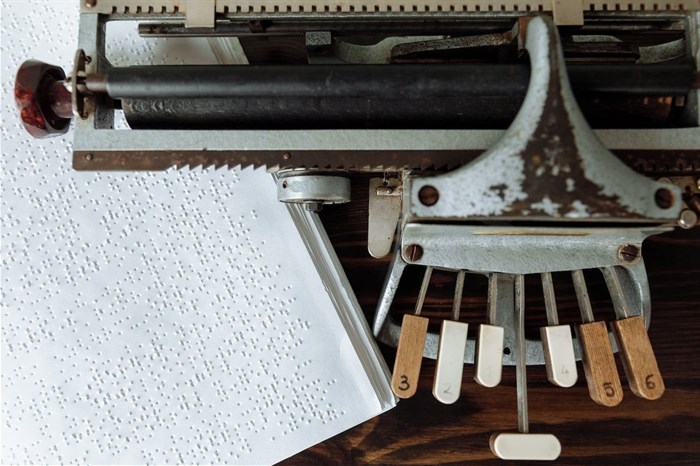
Image source: Thirdman from
PexelsThis official judgment follows the interim order handed down in December 2024, which afforded blind and visually impaired people legal protection to convert copyright protected works into accessible formats without having to obtain permission.
This long-awaited relief stems from a case brought before the Constitutional Court in 2022, in which Blind SA, represented by Section27, challenged certain provisions of the 1978 Copyright Act that criminalised anyone who converted reading materials into accessible formats without the consent of the copyright holder.
Following the ConCourt's ruling this week, Section27 said the judgment marks a turning point that will now allow greater access to reading materials for all persons with disabilities.
The Constitutional Court found in Blind SA’s favour on 21 September 2022 and ordered Parliament to remedy the defects in the Copyright Act within 24 months. However, the Court also crafted its own interim exception for persons who are blind and visually impaired (13A Exception) to be immediately read into the Copyright Act while Parliament was at work. This 13A Exception now provided an interim framework to guide how reading materials could be converted into accessible formats without the consent of the copyright holder.
Tania Broughton 17 Dec 2024 Waiting to be signed
Parliament completed its task and on 29 February 2024, it approved the Copyright Amendment Bill and sent it to the President for signature. Importantly, the CAB contained section 19D, which responded to the court order and created an exception for all persons with disabilities to convert materials into accessible formats without the consent of the copyright holder.
Unfortunately, by the 24-month court deadline, 21 September 2024, the CAB remained unsigned. As a result, the court-crafted 13A Exception lapsed and there was no longer certainty on how materials could now be converted without the consent of the copyright holder. Without this framework, South Africa could also not ratify the Marrakesh Treaty, which would allow access to hundreds of thousands of materials in accessible formats through cross-border exchange.
Urgent litigation
Blind SA launched urgent litigation in the Constitutional Court in October 2024 to compel the President to sign the CAB or to at least, resuscitate the court-crafted 13A Exception. However, soon after, the President referred the CAB to the Constitutional Court and only then Blind SA asked that the 13A Exception remain in place until the CAB is passed into law. On 13 December 2024, the Constitutional Court agreed with Blind SA and handed down an interim order granting the resuscitation of its 13A Exception.
On 8 May 2025, the Court handed down its final order, declaring the matter urgent, and ordering that section 19D of the CAB be immediately read into the Copyright Act until the CAB is passed into law. In making its decision, the Court noted that section 19D is:
a more robust and legally sustainable framework. Its structure harmonises with both evolving disability rights principles and South Africa's international obligations, providing essential flexibility, durability, and clarity for meaningful relief.
The Court also found that the President alone had the authority and knowledge to prevent this litigation, which was caused by his delay in addressing the CAB. As a result, the Court also ordered the President to pay Blind SA’s legal costs for this case.
Tania Broughton 23 Oct 2024 Win for human rights
"We are ecstatic at the final judgment by the Constitutional Court," said Jace Nair, CEO of Blind SA. "This has been a long struggle for over 20 years and may be the catalyst to ending the book famine and decriminalising blind and visually impaired persons in transcribing reading materials in accessible formats.
"The South African Government no longer has an excuse for not ratifying the Marrakesh Treaty and now it has the legal framework to ratify the Treaty. We acknowledge our gratitude to our legal team and the various individuals and stakeholders for supporting our basic human rights to accessing information in an accessible format.”
Section27 believes the Court’s judgment marks a giant step in protecting the basic human rights and will have far reaching effects on the lives and rights of persons with disabilities by allowing them greater access to reading materials in formats they can read.






































